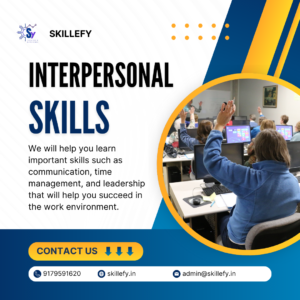Impostor syndrome affects many professionals who find themselves deeming their successes as achieved through luck, rather than ability, or they feel these successes are unearned in some way. A person may have external rewards and massive success but the person might still be haunted by feeling like an imposter; therefore, these feelings will only be properly overcome when self-awareness is used to create effective practice strategies in order to instill lifelong confidence.
The First Step
Become aware of the existence of impostor syndrome. Knowing that most people experience these feelings and that they do not reflect your actual abilities can help you disengage from these negative thought patterns. The fact that even the best people have these thoughts may be comforting. When you feel like an imposter, just labeling the emotion—”I am experiencing impostor syndrome now”—can reduce its power and allow you to regain control over your thoughts.
Thoughts Reframing
One of the most effective methods to counter impostor syndrome is to reframe your thoughts. Negative cognitive patterns usually intensify feelings of inadequacy. For example, you may think, “I only got this job by luck” or “I am not as good as my peers.” You have to challenge these beliefs with real evidence of your capabilities and achievements.
Remind yourself of the dedication, qualification, and experiences that will have led to that level of success if you feel beneath where you have been promoted. Concentrate on the facts, and you can really work on changing your internal chatter and start to realize true worth.
You can keep track of your accomplishments to combat impostor syndrome.
The act of making a list of your achievements—positive evaluations from supervisors, completed projects, or important personal milestones—can work against the feeling of self-doubt.
Whenever you are experiencing a feeling of not knowing your skills, this record will be the proof of your competencies and abilities. Gradually, keeping this record can make you look at your professional journey in a more positive and objective light.

It is equally important to understand that no one succeeds alone. You need to find mentors, peer networks, or trusted colleagues to whom you can go for support, as they will be able to tell you that you are not alone in this; so many professionals face similar fears.
A good mentor would talk you through your insecurities openly, and support you feel that you are not isolated. Having someone to give you constructive criticism and guidance will certainly increase your confidence in yourself and your abilities.
Impostor syndrome thrives mostly when we make comparisons to others. Yet we have to remember that each individual’s career path is unique, and making a comparison of your secret hours of work with another person’s successful hours can be a real killer.
No Comparisons
Stop making comparisons to others and instead develop on your own. Celebrate the steps forward you have taken and remind yourself that everyone has weaknesses and strengths. Success is a personal and subjective matter, and comparisons with others rarely yield a fair or balanced comparison of your abilities.
One of the most common triggers for impostor syndrome is the pursuit of excellence. Those who experience such feelings tend to believe that one mistake will expose the inadequacies they seem to have. I
t is important to note that expertise is something that one learns over time, and perfection at the onset is not a characteristic. Each practitioner has gone through mistakes, challenges, and learning lessons from their experiences.
By accepting the fact that it is necessary to err during the process of learning, this can do much to assuage the fear of failure that weighs against an individual.
It is also worthwhile considering the chance of failure at every given risk as a significant opportunity to enhance individual development and learn new skills.
Shifting the focus from perfection to progress can also mitigate the pressures that contribute to impostor syndrome. The quest for perfection can often lead to paralysis, hindering action and advancement. Gradual improvements and minor achievements can be used to foster a stronger sense of self-efficacy. Over time, these incremental steps can culminate in substantial accomplishments, thereby affirming one’s capabilities.
Self-compassion
It is an important ingredient in the cure for impostor syndrome. It is all too easy to criticize oneself when results do not go as planned, but that is the way to keep feeding the wrong emotions. Learn to be kind to yourself when things go wrong. Be to yourself the same kindness and understanding you’d extend to a friend who is also confused in similar ways. By embracing your humanity and flaws, you can reduce the internal dialogue that tells you that you are not good enough.
Finally, developing a growth mindset is crucial in combating the feeling of being an impostor. A growth mindset is the belief that abilities and intelligence can be developed through time and effort. This mindset allows people to view challenges as opportunities for growth rather than measures of their ability. When one views their career as a dynamic process, one can more easily accept the setbacks, mistakes, and failures that come along as part of the development process and not as signs of weakness.
It is a gradual process of addressing impostor syndrome and not an overnight solution; still, it is surely possible with determination and tenacity. The thing is that to recognize the patterns that haunt one’s self-doubts and face them by real evidence, self-compassion, and support from the environment. By changing your mindset, recording your accomplishments, and seeking mentorship, together with recognizing your developmental progress, you can gradually displace feelings of impostors with a more stable and more confident sense of self-esteem. Remember that your success is worthy of your efforts, and you have the ability to continue thriving in your profession.
Learn More – Success Blueprint
Visit our Linkedin Profile – Success Blueprint
Wanna Know How To Create GST-Compliant Invoices in Tally Prime.?
Introduction In a world where businesses run on speed, automation, and compliance, Tally Prime remains…
Avoid These 5 Founder Fails That Cost Time, Money & Confidence
The road to entrepreneurship is exciting—but let’s be real, it’s full of potholes.What if you…
Why Your Social Media Strategy Is Failing (And How to Fix It in 2025)
It’s 2025, and yet many entrepreneurs are stuck in 2018-era social media tactics. Posting daily,…
10 Excel Hacks Every Professional Should Know in 2025
Excel is more than just rows and columns. It’s your secret weapon for analysis, reporting,…
The Harsh Truth About Skill-Based Internships (And How to Beat the Odds)
Tired of Useless Internships? Here’s One That Actually Builds Your CareerLet’s be honest: Too many…
Do you think You Are Late in this AI world (How to Catch Up)
In 2025, AI is no longer optional—it’s a weapon for those who know how to…





















